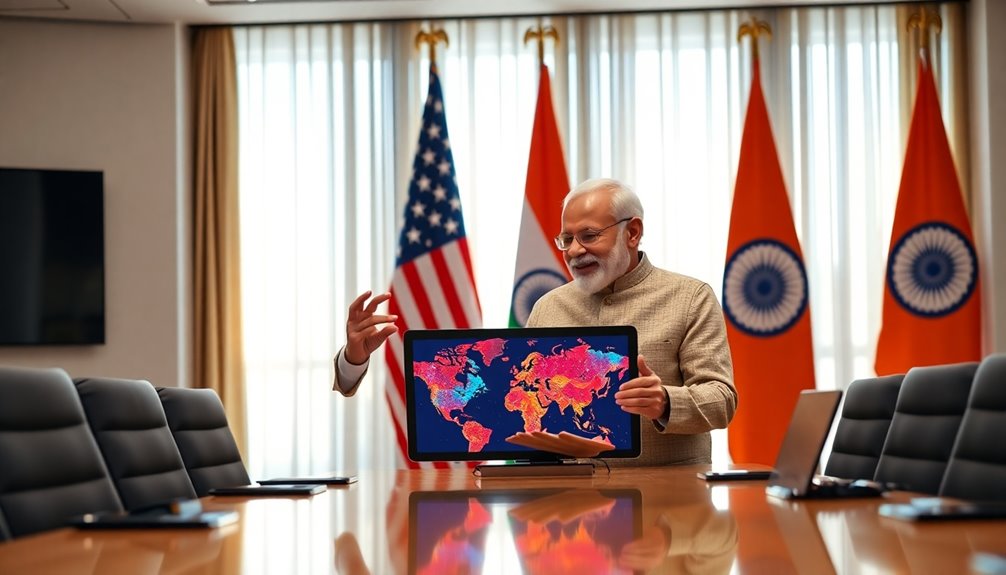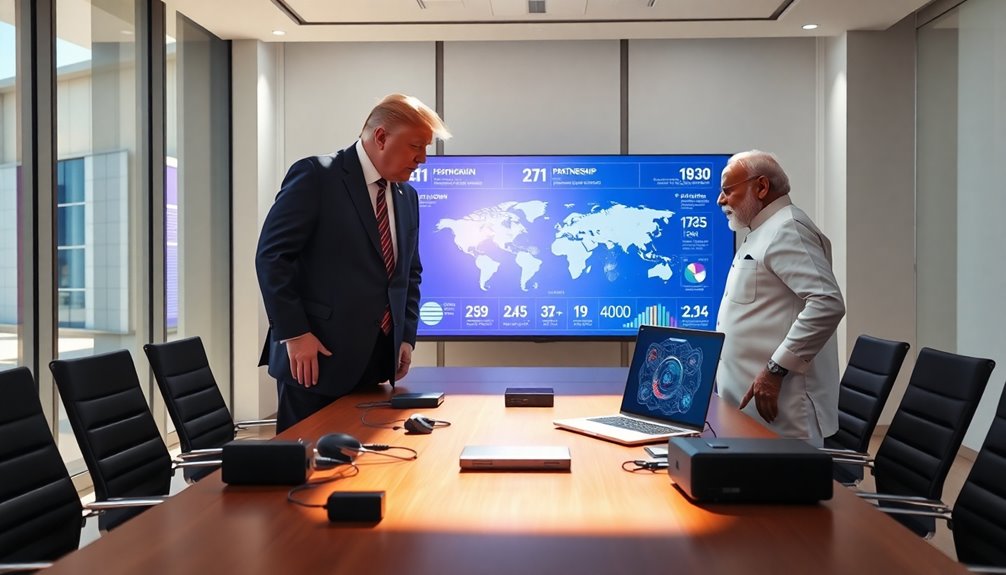You might find it intriguing that former President Trump and Prime Minister Modi have teamed up to enhance AI collaboration, inspired by global tech leaders like Macron. Their new US-India TRUST Initiative aims to create a robust framework for innovation, focusing on vital areas like semiconductor technology and biotechnology. As they navigate this partnership, the implications for global tech leadership are significant. What challenges and opportunities lie ahead for both nations in this evolving landscape?

As the digital landscape rapidly evolves, former President Trump and Prime Minister Modi are teaming up to launch the US-India TRUST Initiative, which aims to strengthen collaboration in artificial intelligence, semiconductors, and other cutting-edge technologies. This initiative is a significant step toward enhancing cooperation between the two nations in critical areas like AI, defense, biotechnology, energy, and space.
You're witnessing a remarkable convergence of efforts that not only focuses on innovation but also prioritizes the protection of sensitive technologies. The TRUST Initiative encourages partnerships across government sectors, academia, and private enterprises, creating a robust framework for technological advancement.
By fostering these collaborations, both countries can ensure that they're leveraging verified technology vendors, thus safeguarding their sensitive information while reaping the benefits of shared innovation. The roadmap includes a commitment to developing AI infrastructure in India, with the goal of accelerating progress by year-end. Additionally, this initiative aims to increase investments in data centers and computing power for AI in India.
You'll see increased investments in next-generation data centers and enhanced access to computing power, which are crucial for driving AI innovations. Moreover, it's essential to address regulatory barriers that can hinder the growth of AI infrastructure. By streamlining these regulations, both countries can foster an environment conducive to technological progress.
This initiative isn't just about AI; it aims to tackle various societal challenges by developing applications that can make a real difference in people's lives. Beyond AI, collaboration in semiconductor technology and quantum computing reflects a broader ambition to strengthen ties in these vital areas.
The partnership also extends to biotechnology, energy, and space exploration, showcasing the multifaceted nature of this collaboration. You'll notice that the focus is on building resilient supply chains for critical minerals and materials, ensuring that both countries are well-equipped to meet future technological demands.
The economic and strategic implications of this initiative are profound. By enhancing trade and investment opportunities, both nations can position themselves as leaders in innovation and technology. Addressing export controls will facilitate technology transfer, giving them a competitive edge in the global market.
This strategic partnership is designed to counter unfair practices and strengthen their foothold in emerging technologies.











